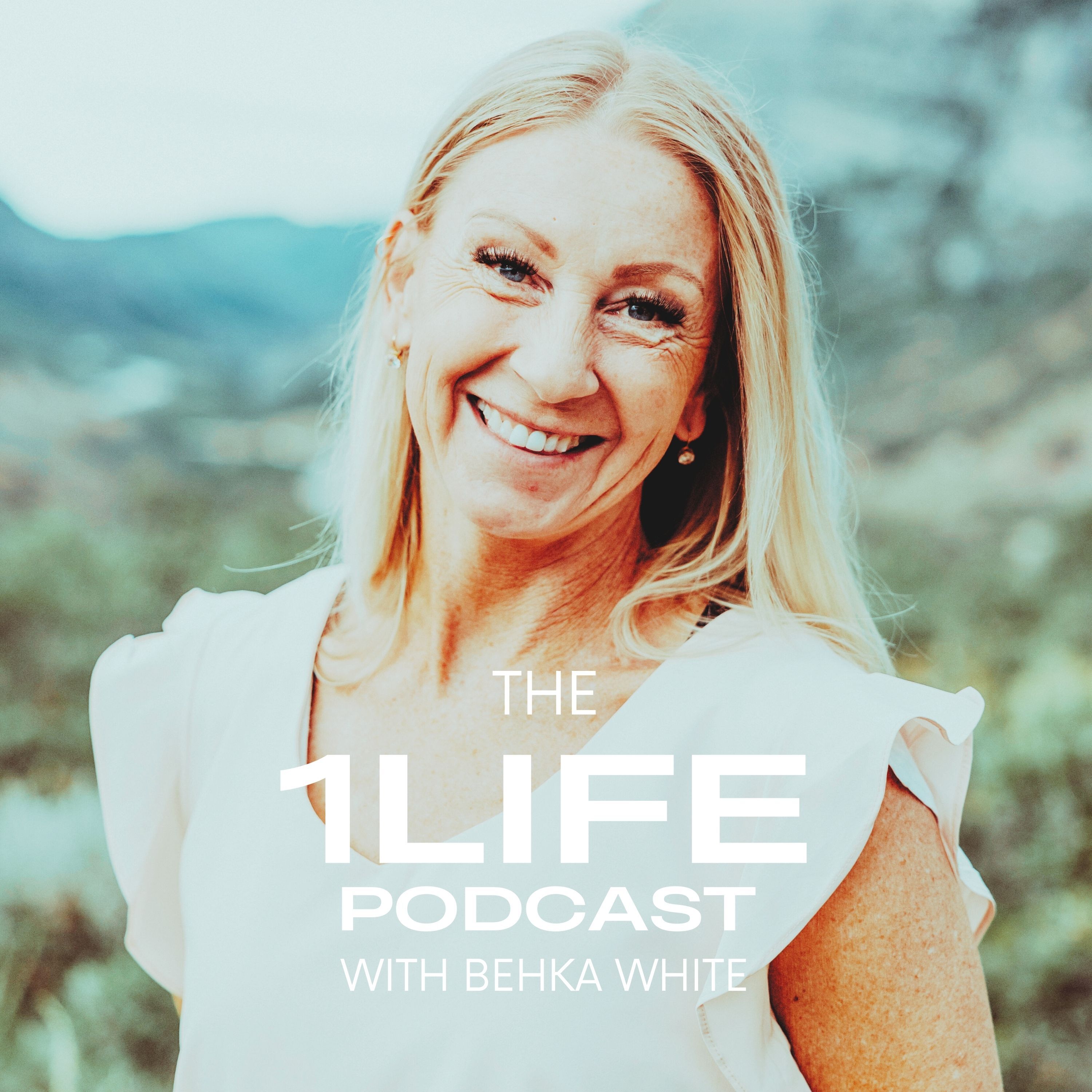In Episode 62 of the 1life podcast, Behka White discusses the role of conscience in happiness. She references a quote by Leo Tolstoy, suggesting that we either strive to live in harmony with our conscience or hide from its indications. Behka acknowledges that past mistakes can weigh on our conscience and lead to unhappiness. To find peace and happiness, she suggests a three-step process inspired by AA's 12-step program: (1) honesty in admitting our mistakes and their consequences, (2) hope in a higher power that can restore peace, and (3) faith in turning our will and life over to God. Behka emphasizes the importance of self-forgiveness and acceptance of grace to achieve a clear conscience and build a foundation for happiness.
The 1Life Podcast with Behka White
Episode 62 - This is Your Conscience Speaking

In Episode 62 of the 1life podcast, Behka White discusses the role of conscience in happiness. She references a quote by Leo Tolstoy, suggesting that we either strive to live in harmony with our conscience or hide from its indications. Behka acknowledges that past mistakes can weigh on our conscience and lead to unhappiness. To find peace and happiness, she suggests a three-step process inspired by AA's 12-step program: (1) honesty in admitting our mistakes and their consequences, (2) hope in a higher power that can restore peace, and (3) faith in turning our will and life over to God. Behka emphasizes the importance of self-forgiveness and acceptance of grace to achieve a clear conscience and build a foundation for happiness.
- Duration:
- 4m
- Broadcast on:
- 11 Sep 2024
- Audio Format:
- aac
Welcome to the One Life podcast with Becca White. This is Episode 62. This is your conscience speaking. Today we are continuing our exploration of happiness using the four human endowments articulated by Steven Covey. As a recap, each human has been given four divine gifts, including creative imagination, independent will, conscience, and self-awareness. These four endowments affect our state of being and therefore play an important role in our happiness. Today we're talking about our conscience, which is a person's inner sense of right and wrong. Covey said of conscience, "Conscience puts us in touch with something within us even deeper than our thoughts and something outside of us more reliable than our values. It connects us with the wisdom of the ages and the wisdom of the heart. It is an internal guidance system that allows us to sense when we act or even contemplate acting in a way that is contrary to our deepest values." I've heard it said that true happiness is having a clear conscience. I happen to disagree with this because I think one can have a clear conscience and still be unhappy. However, it does not work the other way. Without a clear conscience, happiness is impossible. Leo Tolstoy said this about it, "All human life, we may say, consists solely of these two activities. Number one, bringing one's activities into harmony with conscience. Or, number two, hiding from oneself, the indications of conscience in order that we may be able to continue to live as before. Some do the first, others the second. To attain the first, there is but one means moral enlightenment, the increase of light in oneself and attention to what it shows. To attain the second, to hide from oneself the indications of conscience, there are two means. One external and the other internal. The external means consists in occupations that divert one's attention from the indications given by conscience. The internal method consists of darkening conscience itself." Tolstoy's words are powerful and possibly excessive. To summarize, either we try to live in greater harmony with our conscience by increasing light in ourselves and making adjustments, or we hide from the pain of our conscience to avoid change in two ways, by outward distractions or by internal suppression, both of which darken our conscience. According to Tolstoy, there is no in between. Either we are increasing our light or increasing our darkness. So, what can we do when our conscience is in pain? When we are tormented by some of the things that we have done. Don't worry, we have all been there. Well, you know when you steal a candy bar when you're five years old and your mom makes you take it back and you feel shame and embarrassment and then you go home and everything's fine. Well, that's when we're five. The things that we do when we are 15 or 45 or 65 often have lasting consequences that we cannot fix. What then? Are we doomed to unhappiness because our conscience can't rest? No, no, we are not. There is grace. Grace is a divine principle accessible to all, regardless of belief system. Y'all are going to get tired of me quoting the first three steps of AA, but they are just that good. I'll change the wording a bit here. Step one, honesty. I have harmed myself and or others and I am powerless to fix the consequences of my actions. Step two, hope. I believe there is a power greater than myself that can restore peace to my soul. Step three, faith. I turn my will and my life over to God as I understand him. I can't. God can. I will let him. The rest of the 12 steps are equally as fantastic and maybe we'll graduate to those soon. In the meantime, having a conscience at rest is the foundation for building happiness. Having a conscience at rest is dependent on grace. We are not perfect. Grace is. Forgive yourself. Accept grace. Increase your light. I can't. God will. I will let him. This is how we build our best life. [BLANK_AUDIO]